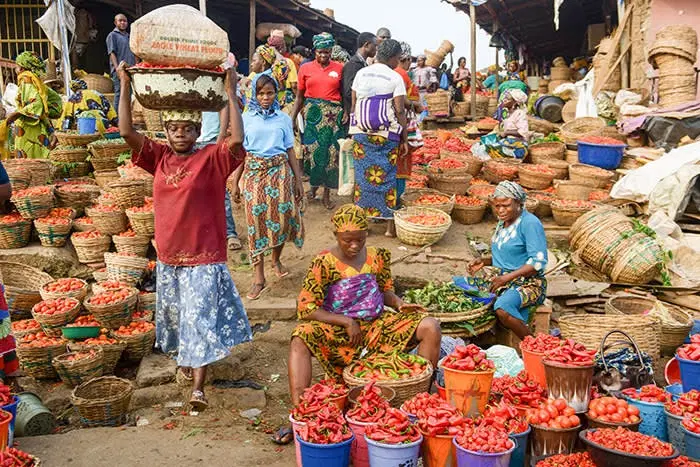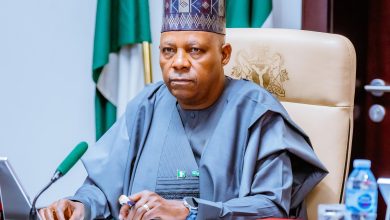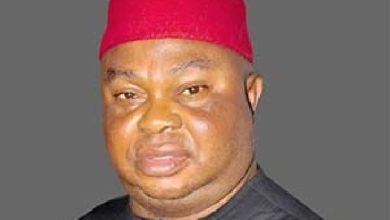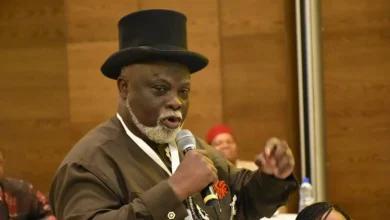Prices Soar Across Markets Despite Government’s Growth Narrative

Nigeria’s economic recovery is depicted in official figures, but the reality on the ground is more negative. ISAAC ASABOR examines the growing disparity between official growth claims and the exorbitant expense of living that ordinary Nigerians must contend with in this essay. In Nigerian marketplaces and households, the essay exposes the inconsistency between economic theory and actual reality through the use of expert views, grassroots voices, and a critical examination of the World Bank’s support for reforms.
The average Nigerian still has to contend with the soaring costs of products and services in all markets, even in the face of optimistic official statements praising economic stable development.
Nigerians are wondering why economic progress that does not result in affordability or relief is still relevant in what seems to be a story of two economies—one measured by statistics and boardroom data, and the other lived in the trenches of everyday survival.
The National Bureau of Statistics (NBS) announced that Nigeria’s GDP increased by 3.13% in the first quarter of 2025. Given the aforementioned, it is convenient to start with this information.
After years of weak performance, currency devaluation, and macroeconomic unrest, this seems positive on the surface.
Nevertheless, the majority of Nigerians will tell you that the alleged growth is not noticeable in their day-to-day existence.
Remarkably, the Nigerian government has received praise from the World Bank for implementing challenging economic changes that are starting to produce macroeconomic gains.
According to the organization’s June 2025 Nigeria Development Update (NDU), “Nigeria’s reforms have helped restore macroeconomic stability, boost investor confidence, and improve public revenues.”
The Tinubu administration deserves praise for enacting long-delayed reforms that could create the groundwork for more robust and equitable growth, according to Shubham Chaudhuri, the former Country Director for Nigeria at the World Bank. Now is the time to shield the weak and impoverished from the direct effects of those measures.
The World Bank issued a stark warning: “High inflation, rising unemployment, and increasing poverty remain significant risks,” even as it commended the measures to unify the currency rate, remove fuel subsidies, and curb budgetary leakages.
It appears that while the inflation rate is declining, prices are not. Citing the need to address persistent inflation, the Central Bank of Nigeria (CBN) kept its monetary policy rate at 27.5% in July 2025.
From 23.71% in April to 22.22% in June 2025, the headline inflation rate decreased significantly, although it is still among the highest in sub-Saharan Africa.
In many areas, food inflation has maintained much above 30%, which is more concerning.
The price of a 50kg bag of rice has increased from N35,000 in 2023 to between N75,000 and N99,000, according to a Lagos market poll.
In 2023 a loaf of bread would have cost N600, but now it would cost N1,200 or N1,300, depending on the market and brand. There have also been price increases of 70–100% in less than a year for meat, poultry, veggies, and cooking oil.
“The inflation figures don’t accurately represent the state of the market,” stated Mrs. Iyabo Adeoye, a merchant in Mile 12 Market. When prices double every few months, buyers are unable to make the purchase. Food is even being purchased by some in teaspoons.
Following the elimination of fuel subsidies in 2023, transportation expenses have also increased significantly. Fuel used to sell for N195 per liter, but now it sells for between N900 and N1,000.
Especially in cities that rely on food transported from far-off rural areas, food prices have increased in tandem with transportation costs, which have increased by up to 200%.
Even as costs rise, wages hardly move. Many firms, both public and private, are still not complying with the new N70,000 minimum wage, which was just announced by the federal government.
Uche Chukwuma, a security guard at Ogba in Lagos, stated, “I still keep N45,000 a month, and I have three kids to support.” When the cost of transportation alone is N20,000 per month, how can I manage? These days, I forgo meals in order to survive.
Read Also: Ransom Paid, Lives Lost: 38 Hostages Killed in Zamfara Despite N50 Million Payout
Even with the updated minimum wage, the Nigeria Labour Congress (NLC) claims that most Nigerian workers are still unable to cover their basic expenses, and unless inflation is addressed thoroughly, the amount would drop again in a few months.
Feeding a family of five three square meals a day has more than doubled in cost since mid-2023, according to a recent SBM Intelligence analysis.
They stated that Nigerians are dealing with more than simply inflation at the moment. The affordability crisis is severe.
Macroeconomic performance and citizens’ microeconomic struggles are incompatible, as economic experts have often noted.
We are expanding the economy without affecting the people, according to Dr. Muda Yusuf, a former director-general of the Lagos Chamber of Commerce and Industry (LCCI).
The industries driving growth are banking, oil and gas, telecoms, and industries that don’t generate wealth or mass employment. The industries that affect the typical person the most—agriculture, manufacturing, and SMEs—continue to face challenges related to power, insecurity, and logistics expenses.
At a recent policy roundtable, former CBN head and Anambra State Governor Professor Chukwuma Soludo also issued a warning:
Nigeria’s economy cannot be saved by monetary or fiscal tinkering alone; structural improvements must be accompanied by comprehensive human development measures. When individuals are unable to pay for healthcare, food, transportation, and rent, GDP growth is a paper tiger.
The same irritation is felt by dealers, purchasers, and transporters, according to information obtained from the ground up at Lagos’ Oyingbo Market.





